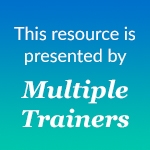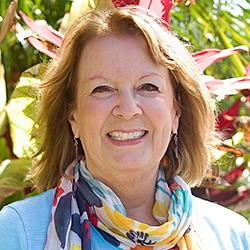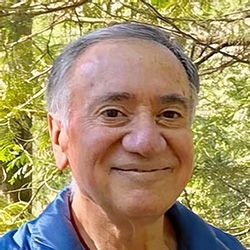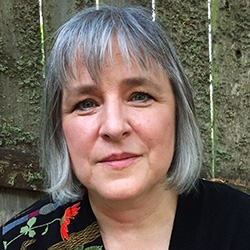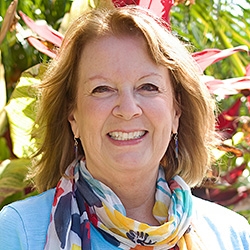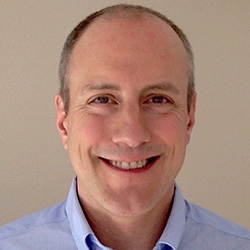
Search Results: violence
-
I love the insights, resources, and inspiration I get from this course. It gives you a glimpse into the support Miki offers around deepening the practice of nonviolence in thought, word, and action.
—Lore Baur, NVCA Course Coordinator, CNVC Certified Trainer.Miki is sharing what that means "Responding to the Call of our Time" for her and invites us to feel that call. This video illustrates how she is helping participants through teaching, coaching and mentoring so they can move forward with their challenges.
-
Listen to Miki Kashtan explain the importance of intention in developing our skill at creating solutions that work for everyone. Neither fighting nor giving up are qualities of nonviolence, but rather a fierce determination to hold the needs of all parties may arise.
-
-
Listen to this newly remastered audio with seasoned Life Coach and CNVC Certified Trainers Martha Lasley and Dian Killian, to explore how you can "be the change" in your life, to live fully in integrity with your values in your work, community, faith and social action groups.
-
Experience John Kinyon's application of NVC Founder Marshall Rosenberg's 4-part model of reconciliation and healing, a model he developed over the course of decades of work with people around the world who have experienced the deep pain of violence.
-
Trainer Tip: The ways that we interact with our children shape the way they will interact in their world. How do your actions model compassion, tolerance, and love for your children?
-
Listen to the Universe is a fun group exercise to explore how we focus our attention and interpret what we experience.
-
It can be challenging to tell people that you don’t like a certain behaviour or action of theirs. Even with supportive intentions and compassionate language your message might be difficult for someone to receive. Of course, we are not responsible for others’ reactions, but we are responsible to care about each other, and there are effective ways to express ourselves with more care.
-
Clinical psychologist, Robert Gonzales, Ph.D., uses an open dialogue with a practitioner to explore effective, compassionate methods to handle a volatile counseling situation. This resource has been newly remastered to a larger, higher quality video.
-
During this session, Giorgos will walk you through a series of short, meditative practices and exercises designed to help you practice noticing, experiencing, and bringing shame to light — transforming it from a burden to a playful fellow as well as a portal to self-knowledge and internal freedom. You'll discover how the deep power of human connectedness can dilute the fogginess of sensitive issues, bringing them higher into your consciousness, and enabling the flow of life to pass right through them!
-
In thinking about your relationship with fear and doubt, see what happens when you ask yourself "What do you trust?”. Here's an example response to that question, and how it can open new perspective, soften fear, and bring trust to new depths.
-
- Look at your old patterns with warmth – while also opening yourself up to change.
- Increase your self-compassion – and gain a solid ground to stand on.
- Become intimate with your own survival strategies – and those of the people you love.
- Support healing and connecting in your long-term relationships – even when it seems there is no resolution in sight!
-
There's a growing trend to elevate feelings and personal truths (aka MY truth) to the point of being unassailable "facts". If I feel unsafe, then it must be because of you. As valid as a person’s inner world is, we risk overlooking what's beyond our own views, such as larger forces around us that continue to underwrite exploitation, violence, “othering”, etc. Instead, describe specific words and actions that a camera would record.
-
Trainer Tip: Never Compromise, because that is where you share the resentment 50/50.
-
Trainer Tip: It can be painful spending our days pretending we’re not who we are. For example, we may try not to be passionate in our expression because if we think its “too much” for people. This can lead to trying to figuratively to squeeze ourselves into small spaces in life. Alternatively, we can choose who to share our passion with, and speak our truth to. Today, notice what you need and to work actively to meet your needs.
-
Dear friends,
#UnlockYourAuthenticVoice
This has been on my mind lately. What does it mean to unlock my authentic voice? How do I talk about things that matter to me without creating emotional distance between myself and others? I’ve found this especially challenging after the US presidential election this month— half the voters are devastated by Donald Trump’s election, and the other half are elated. The extremes are vast. Sometimes imagining a coming-together feels hopeless.
-
Learn how Nonviolent Communication (NVC) can improve the quality of your personal and professional relationships, one interaction at a time.
-
We can see throughout many examples in history that when we look for "who" is at fault, and thereby seek social change through shaming that person (or that group), it tends to lead to disastrous long term consequences. Even if it works in the short term. Instead, if we want to end cycles of violence we can seek to understand systemic causes and context of individuals' behaviour. And from there, look for solutions that stem from this understanding.
-
There's a danger in using empathy exchange to perpetually recirculate and exchange pain (often by telling and re-telling the same old stories), rather than using it as a catalyst for transformation. It can create and further pain in whatever form: anger, destructiveness, hatred, grief, emotional drama, and violence. It can also reinforce dualistic evaluations of "met" vs "unmet" needs. And it can slow down productivity.



